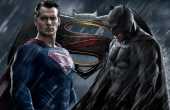Benedict Hadley
Contributing writer for The Artifice.
Junior Contributor II
- Articles
1 - Featured
0 - Comments
3
- Ext. Comments
3 - Processed
0 - Revisions
0
- Topics
1 - Topics Taken
0 - Notes
2
- Topics Proc.
0 - Topics Rev.
0
- Points
193 - Rank
X - Score
82
Latest Articles
Latest Topics
An Exploration of 'Real World' Concerns in Christopher Nolan's Batman TrilogyTo what extent do the films in Nolan’s Batman trilogy engage with 21st century anxieties, and how are they aligned within the Batman myth? After exploring the origins story, Nolan decided to place the character within a contemporary framework. How was he influenced by previous interpretations, and what do the films say about American attitudes towards crime? Possible themes: vigilante justice, crime prevention, state control, corporate guilt.
|
Latest Comments
| Queer Death in Media: Drawing Attention to the Bloodshed | |
I think you nailed it. I was really disappointed with Spectre, it was too long and wanted to have it both ways. It should have either gone for straightforward thrills or stuck to the ‘revisionist’ version of Bond that Craig’s interpretation gave us. | Why was Spectre a Disappointment? |
I think Walter White’s character works in the same way as Henry Hill in GoodFellas or Tony in the Sopranos. They value there own family’s security over everything else, but with Walter he is also consumed by his own success. As his meth business became bigger and bigger, at what point should he have stopped? As he said in the last episode, he “enjoyed” doing it. | Breaking Bad: The Appeal of Walter White |

I think this is such an important debate, and you make some valid points about the representation of queer characters in mainstream media. As you stated western society has progressed significantly in it’s views towards gay relationships in the western world, but unfortunately a lot of outmoded views are still widespread. TV and Film is a valuable tool to combat this, and not enough is being done.
That said, I haven’t noticed the ‘queer death’ tendency myself, and believe that positive representations of gay and lesbian characters are breaking through (Doctor Who, Transparent).